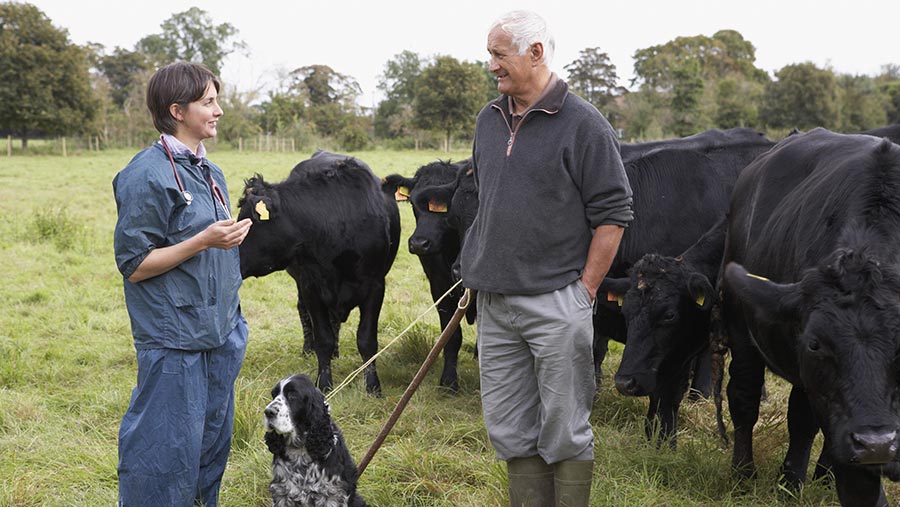Free TB biosecurity advice moves England-wide
 © AdobeStock/Monkey Business
© AdobeStock/Monkey Business The TB Advisory Service (TBAS) is expanding the area it covers to offer all livestock farmers in England free biosecurity advice to protect their herds and reduce the spread of the disease.
This means from the autumn more farmers will have access to advice on how to assess what can be controlled on-farm to reduce the risk and length of a TB breakdown.
Until now, advice has only been available to farms in high risk and edge areas.
See also: Cattle health body launches new approach to TB
“The expansion to TBAS means we can help farmers do everything within their power to prevent the spread of TB into previously unaffected locations,” says Sarah Tomlinson, farm vet and technical director for the service, which has just been awarded a four-year successor contract.
“We witness the devastation caused by TB at first hand, both for farm businesses and the mental health of people affected by an outbreak. This is why it’s crucial for farmers to get independent veterinary advice, bespoke to their farm, free of charge.”
As well as farmers with cattle, advice will be offered to those with pigs, sheep, goats, deer and camelids – such as llamas and alpacas – as they can also be affected by TB.
Types of advice
TBAS offers over-the-phone advice on
- How to stop infected livestock coming on-farm
- Reduce risk from other livestock
- Minimise infection from manure
- Restrict contact between badgers and livestock by managing access to feed and water.
The main service available is a free farm visit by a TBAS-trained vet, who provides tailored advice focused on TB biosecurity and how to reduce the impact reactors can have on a farm business.
“A visit from a TBAS adviser, who is often a vet from [the] local practice, can provide reassurance for a farmer who may be worried about the risk of TB to their farm,” says Mrs Tomlinson.
“Working with a TBAS adviser will help farmers to understand what they can control on farm to reduce the risk of disease or the impact of an outbreak.”
See also: 4 farmers’ badger-proofing inventions help cut TB risk
To access advice from the TBAS, the farmer needs to provide some basic details – name and address, contact details, county parish holding (CPH) and the single business identifier (SBI) number linked to it, UK herd number, number and type of livestock and business size.
What a visit involves
The visit usually takes about two hours, and the farmer is encouraged to invite their own vet to take part. A discussion about the farm setup and farmer’s concerns regarding TB is followed by a walk around the farm buildings and fields.
The adviser goes through what could be done to improve the TB risk and then prepares a bespoke report, including recommendations of practical steps the farmer can take.
A second free visit, six months later, allows for any feedback on the service and an update on how the farmer is getting on implementing the recommendations suggested in the report.
There is no penalty if the recommendations are not implemented.
Farmers who have already accessed the service will also be eligible to seek advice.
Vet training
TBAS has been funded by Defra for a further four years and will now be delivered exclusively by independent farm vets.
VetPartners, the group of veterinary practices that leads the service on behalf of Farmcare Solutions, which was awarded the contract, will draw on the existing network of vets who are trained to offer bespoke advice on biosecurity measures to reduce the spread of TB, and upskill additional vets in areas where more TBAS-trained vets are needed.
The service is designed to work alongside wider national strategies, such as testing, badger culling and vaccinations.
